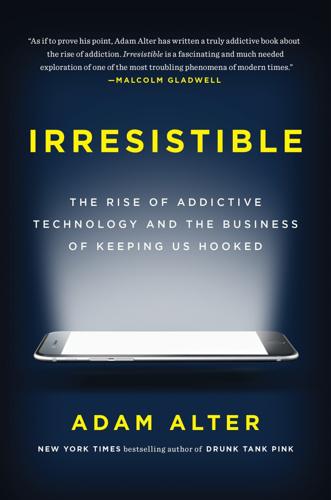
Irresistible: The Rise of Addictive Technology and the Business of Keeping Us Hooked
by
Adam L. Alter
Published 15 Feb 2017
In a classic paper: Dražen Prelec and Duncan Simester, “Always Leave Home Without It: A Further Investigation of the Credit-Card Effect on Willingness to Pay, Marketing Letters 12, no. 1 (2001): 5–12; see also: Dražen Prelec and George Loewenstein, “The Red and the Black: Mental Accounting of Savings and Debt,” Marketing Science 17, no. 1 (1998): 4–28. CHAPTER 8: CLIFFHANGERS In their own: Responses to the ending of The Italian Job on the Internet Movie Database: www.imdb.com/title/tt0064505/reviews. Forty years earlier: Background material on Bluma Zeigarnik and her eponymous effect: A. V. Zeigarnik, “Bluma Zeigarnik: A Memoir,” Gestalt Theory 29, no. 3 (December 8, 2007): 256–68; Bluma Zeigarnik, “On Finished and Unfinished Tasks,” in A Source Book of Gestalt Psychology, W. D. Ellis, ed., (New York: Harcourt, Brace, and Company, 1938), 300–14; Colleen M. Seifert, and Andrea L. Patalano, “Memory for Incomplete Tasks: A Re-Examination of the Zeigarnik Effect,” in Proceedings of the Thirteenth Annual Conference of the Cognitive Science Society (Mahwah, NJ: Erlbaum, 1991), 114–19.
…
The problem here was that viewers had committed an hour and a half to the story, and like all humans they were wired for closure. If you’ve ever been denied a joke’s punchline, you’ll know that it’s better to hear no story at all than to hear all but the story’s final beat. — Forty years earlier, a Lithuanian psychologist named Bluma Zeigarnik stumbled on the power of cliffhangers. She was sipping coffee at a small café in Vienna when she noticed that her waiter remembered his customers’ orders with superhuman clarity. When he approached the kitchen, he knew to tell the cook to prepare eggs Benedict for table seven, a ham and cheese omelet for table twelve, and scrambled eggs for table fifteen.
…
This was the golden age of disco, and in many ways, “September” is a model disco classic. But in other ways it’s very unusual. Many pop hits follow a standard circular chord progression—they launch like a rocket ship, hover for a time above the launch pad, and ultimately close the melodic loop by returning to Earth. In the world of Bluma Zeigarnik’s waiter, these tracks are fulfilled orders: they’re satisfying, but your mind leaves them behind when they end, and another song begins. Not so for “September,” according to Peretz. “One of the amazing things about the chord progression in ‘September’ is that it never lands. It makes this loop that you never want to stop hearing.
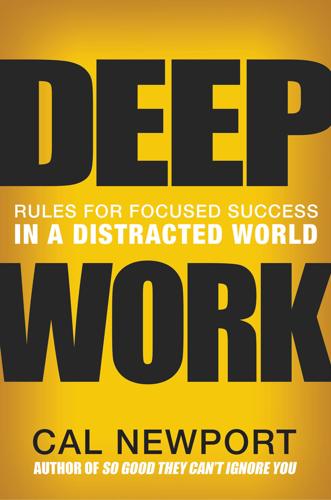
Deep Work: Rules for Focused Success in a Distracted World
by
Cal Newport
Published 5 Jan 2016
The concept of a shutdown ritual might at first seem extreme, but there’s a good reason for it: the Zeigarnik effect. This effect, which is named for the experimental work of the early-twentieth-century psychologist Bluma Zeigarnik, describes the ability of incomplete tasks to dominate our attention. It tells us that if you simply stop whatever you are doing at five p.m. and declare, “I’m done with work until tomorrow,” you’ll likely struggle to keep your mind clear of professional issues, as the many obligations left unresolved in your mind will, as in Bluma Zeigarnik’s experiments, keep battling for your attention throughout the evening (a battle that they’ll often win). At first, this challenge might seem unresolvable.
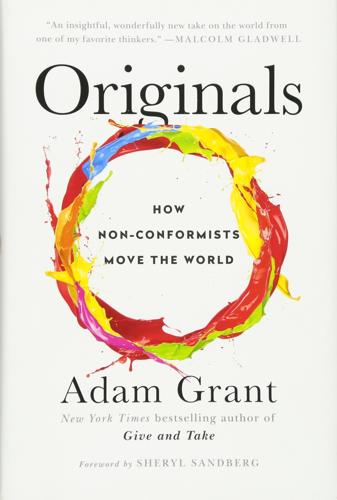
Originals: How Non-Conformists Move the World
by
Adam Grant
Published 2 Feb 2016
As Jones recalls, King “said that this was such ‘an important milestone in our civil rights struggle,’ we should make every effort to get the best ideas” from key players in the movement. King opened the meeting by explaining that he “wanted to review the ideas again and get the best approaches.” By delaying the task of fleshing out and firming up the speech, King allowed Jones to benefit from the Zeigarnik effect. In 1927, Russian psychologist Bluma Zeigarnik demonstrated that people have a better memory for incomplete than complete tasks. Once a task is finished, we stop thinking about it. But when it is interrupted and left undone, it stays active in our minds. As Jones was comparing his early draft to the topic of that evening’s discussion, “something worked its way up from the depths of my subconscious.”* Four months earlier, Jones had met with Governor Nelson Rockefeller, a noted philanthropist whose family was supportive of civil rights, seeking funds to bail King out of the Birmingham jail.
…
Abraham Lincoln’s Gettysburg Address: Peggy Noonan, “The Writing of a Great Address,” Wall Street Journal, July 5, 2013, www.wsj.com/articles/SB10001424127887324399404578583991319014114; Ronald C. White, Jr., The Eloquent President: A Portrait of Lincoln Through His Words (New York: Random House, 2011). the Zeigarnik effect: Bluma Zeigarnik, “Das Behalten erledigter und unerledigter Handlungen,” Psychologische Forschung 9 (1927): 1–85; see Kenneth Savitsky, Victoria Husted Medvec, and Thomas Gilovich, “Remembering and Regretting: The Zeigarnik Effect and the Cognitive Availability of Regrettable Actions and Inactions,” Personality and Social Psychology Bulletin 23 (1997): 248–57.

Personal Kanban: Mapping Work, Navigating Life
by
Jim Benson
and
Tonianne Demaria Barry
Published 2 Feb 2011
Usually we’re not even aware we’ve left them unfinished, because we’ve approached our work with little care, with lack of foresight. Without visualizing our work, we don’t see the number of incomplete tasks we’ve amassed. This makes it nearly impossible to understand just how many incomplete tasks remain. Our brains hate this because our brains crave closure. No really, they do! Soviet psychologist Bluma Zeigarnik found that the human brain needs closure. This phenomenon—known as the “Zeigarnik Effect”—states that adults have a 90% chance of remembering interrupted and incomplete thoughts or actions over those that have been seen through to completion. With its tendency to seek out patterns to process meaning, the brain becomes preoccupied with missing pieces of information.
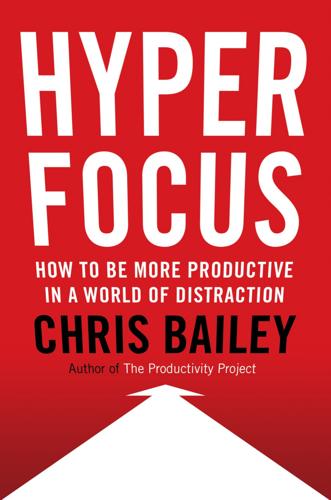
Hyperfocus: How to Be More Productive in a World of Distraction
by
Chris Bailey
Published 31 Jul 2018
INSIGHT TRIGGERS Uncompleted tasks and projects weigh more heavily on our minds than ones we’ve finished—focus comes when we close these distracting open loops. We’re wired to remember what we’re in the middle of more than what we’ve completed. In psychology circles this phenomenon is called the Zeigarnik effect, after Bluma Zeigarnik, the first person to study this concept. The Zeigarnik effect can be annoying when we’re trying to focus, but the opposite is true when we scatter our attention. In fact, it leads to amazing insights into the problems we’re incubating. Chances are you’ve experienced a few eureka moments yourself.
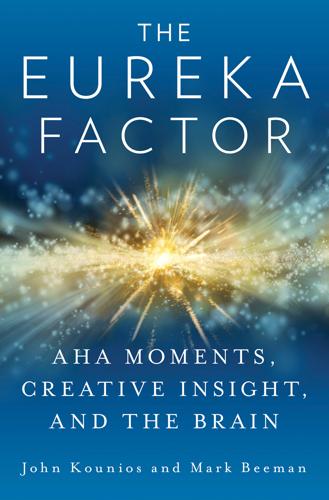
The Eureka Factor
by
John Kounios
Published 14 Apr 2015
That’s how a change in context can help you see things in new ways. This view of the unconscious mind as a filter or spin doctor for the conscious mind, rather than as a hidden collaborator or servant, provides a plausible basis for theories of incubation. UNFINISHED BUSINESS * * * During the 1920s, Soviet psychologist Bluma Zeigarnik traveled from the Soviet Union to Germany to study psychology with the Gestalt psychologist Kurt Lewin at the University of Berlin. Lewin once recounted an informal observation to her. During a meal in a restaurant, he was impressed by the waiters’ ability to remember multiple complicated orders without writing them down.
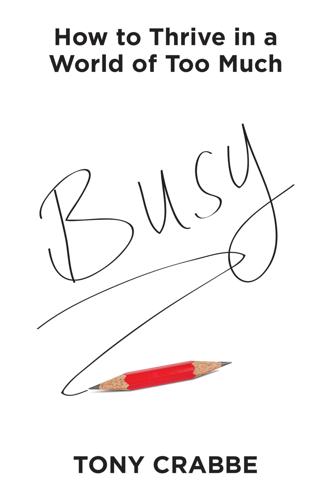
Busy
by
Tony Crabbe
Published 7 Jul 2015
The fact is, there is something inherent in human nature that, when given space, we fill it.11 Giving yourself a clear time to finish (whether a deadline for a project, or a time to leave work) helps in two ways. First, as suggested above, it raises our time awareness, creating a goal. Second, it stops us from creating space and time in our calendars, because things will always fill up that time. 8. Start Quicker In 1927, a Gestalt psychologist called Bluma Zeigarnik was sitting in a Vienna coffeehouse with a group of friends. They ordered a few rounds of drinks, yet the waiter never wrote down their order. Zeigarnik was intrigued by this, and, after the bill was paid and the group had left the coffeehouse, she returned. On questioning the waiter, she found that he no longer could recall what drinks had been ordered by her group.
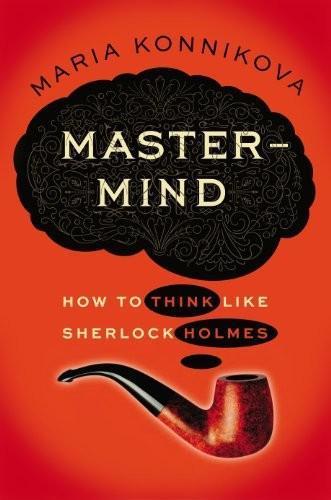
Mastermind: How to Think Like Sherlock Holmes
by
Maria Konnikova
Published 3 Jan 2013
And too lax, well, you may not be stimulated to do anything, or you might relax a bit too much and fall asleep. Even if you don’t come to any conclusions or gain any perspective in your time off from a problem, chances are you will return to it both reenergized and ready to expend more effort. In 1927, Gestalt psychologist Bluma Zeigarnik noticed a funny thing: waiters in a Vienna restaurant could remember only orders that were in progress. As soon as the order was sent out and complete, they seemed to wipe it from memory. Zeigarnik then did what any good psychologist would do: she went back to the lab and designed a study. A group of adults and children was given anywhere between eighteen and twenty-two tasks to perform (both physical ones, like making clay figures, and mental ones, like solving puzzles), but half of those tasks were interrupted so that they couldn’t be completed.
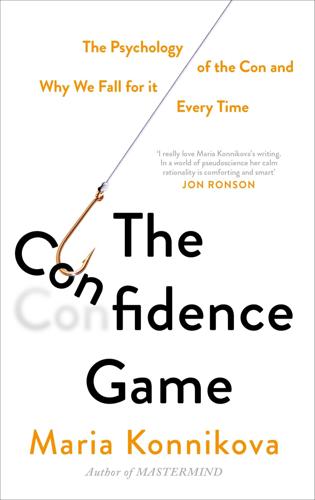
The Confidence Game: The Psychology of the Con and Why We Fall for It Every Time
by
Maria Konnikova
Published 28 Jan 2016
In other words, someone like Frampton, after being released, will likely fail to learn something about the future from his behavior in the past. Memory is a tricky thing, and once we’ve been taken once, it becomes all the more likely that we will fall for a con again. There is no better mark, many a con artist will tell you, than one who has already been duped. When Bluma Zeigarnik, a psychologist from the Gestalt school, discovered her eponymous effect—we remember interrupted tasks better than completed ones; our minds haven’t quite given up working on them, and we feel a strong need to attain some sort of closure—she also noted a far less frequently cited exception. As it turns out, we don’t remember all uninterrupted tasks equally.